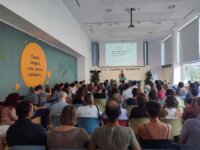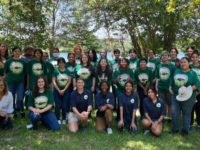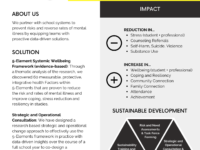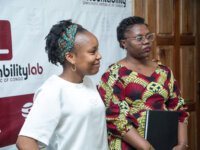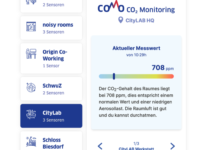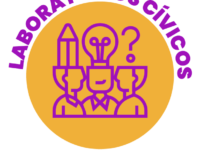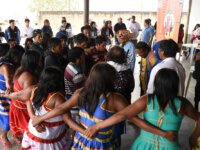Yes, We Rent! has transformed the private rental market by creating a new agent working in partnership with the municipality (hybridization of public policies). Successfully established on 2/2021, “Bloc cooperatiu” is an unprecedented cooperative that gather together tenants willing to search, renovate and rent collectively scattered empty flats, as a way to (self) generate affordable and stable housing targeting low-to-medium income households. It is already managing 61 flats and 105…
Innovation Tag: Citizen Engagement
The Austin Civilian Conservation Corps (ACCC) began as a pandemic response program to help residents earn income and access green careers, and has evolved into a leading model for equitable, climate-focused workforce development. The ACCC, a collaboration with 10+ City departments and multiple community partners, has provided over 125 living-wage opportunities with supportive services, training, and career pathways for Austin’s underserved residents, and is actively shaping the green economy.
Case Study
Collections of Ghent – Connecting citizens through digitised cultural heritage reuse and…
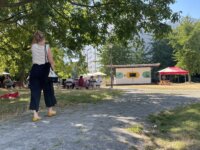
Collections of Ghent is an EU-funded innovation project designed to tackle the urban challenge: How to digitise cultural heritage beyond the cultural institutions, on a city level or higher. And how to use it to improve social cohesion and inclusion within a neighbourhood. It is both a digital transformation project, and a social innovation project where we research how digital cultural heritage can be used in co-creative and participative way.
Mind the Class, a mental health prevention organization, is partnering with school systems to reduce the risks and reverse the rates of mental and behavioral health disorders by creating a community ecosystem. This full year project collaboratively designs a preventive implementation plan using proven wellbeing research and data-driven solutions in collaboration with our University of Warsaw partners and through local public and private partners support sustainable development.
The Accountability Incubator is a creative peer learning program for young civic activists and change-makers who want to fight corruption and build accountability. It was developed to provide long-term support, networks and skills to people who are often overlooked by or left out of traditional civil society programs. It is innovative in that it uses creative tools, a long-term approach and the very latest thinking to shape governance globally.
In COMo, the CO2 concentration (CO2 = Carbon Dioxide) serves as a measure for indoor air quality and aerosol pollution; the latter correlates with the potential (COVID) viral load. Objective CO2 readings via networked sensors enable operators to control the indoor air quality and thus reduce the risk of infection for visitors. Published data allow visitors to make decisions about visiting the facility.
All content is available under open source licenses (MIT, BSD, Creative Commons).
Bogotá-Colombia is a city co-administered by 20 local mayor's offices. In the past, it was on the Mayor's power to allocate resources without necessarily go through public or community consultations, which is why several city infrastructures emerged without responding to specific needs nor recognizing the diversity in the population. With the Civic Laboratories of participatory budgeting, the community began to engage on where to decide where to invest their local budgets.
When I began working as a judge in the town of Águas Formosas (in Minas Gerais, Brazil), I discovered that the region was inhabited by more than 2,000 Maxakali Indians, who lived in large villages and spoke another language. I researched their access to justice and realized that they suffered from many rights violations. With the support of the Court of Justice of Minas Gerais and the Regional Electoral Court, I created an innovation project to bring citizenship, democracy, and justice to the…
Madrid is with You is a social innovation aimed at people from Madrid over 65 years old. Through a simple mobile application that connects an elderly person (or its family members) with a volunteer from the program "Volunteers for Madrid" they receive accompaniment and support on specific tasks such as helping them booking appointments for the doctor, attending with them, going for a walk, and more. The Volunteer body is made of more than 17,000 people.
In order to bridge the gap between representatives and represented, the Brussels Parliament intends to open its doors to all the inhabitants of the Brussels-Capital Region. It has therefore decided to include in its rules of procedure a system of citizen participation: the Deliberative Committees (commissions délibératives). These committees, made up of 15 elected officials and 45 citizens chosen by lot, are responsible for drawing up recommendations on a given topic, which the Parliament must…

